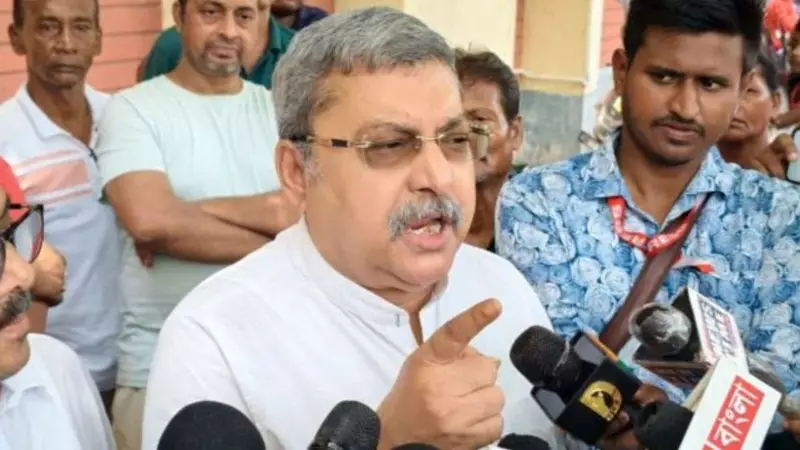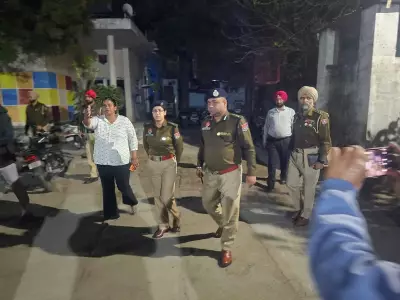
Political Firestorm Erupts as TMC MP Faces Criminal Charges
Trinamool Congress MP Kalyan Banerjee has been formally charged with multiple criminal offenses following his controversial allegations against West Bengal Governor CV Ananda Bose. The First Information Report (FIR) was registered at Kolkata's Hare Street Police Station on November 19, 2025, marking a significant escalation in the ongoing political confrontation between the state government and the governor's office.
The case stems from Banerjee's explosive claims that Governor Bose was "sheltering BJP's criminals" and "stocking arms and ammunition" within the Raj Bhavan premises. These statements have triggered a legal battle that could have far-reaching political consequences in West Bengal.
Legal Charges and Potential Consequences
According to police officials familiar with the case, the FIR invokes several serious sections of the Bharatiya Nyaya Sanhita (BNS). The most severe charges include crimes related to assault or wrongful restraint of a Governor with intent to prevent them from exercising lawful powers, and acts that endanger India's sovereignty, unity, and integrity.
Additional sections address attempts to jeopardize national integration, acts promoting enmity between different groups, disturbing public harmony, and statements that could lead to public mischief. Significantly, all these charges are non-bailable offenses carrying a maximum punishment of seven years imprisonment.
The legal action was initiated based on a formal complaint filed by Raj Bhavan authorities, indicating the governor's office is taking a zero-tolerance approach to what they perceive as defamatory and potentially dangerous allegations.
Governor's Unprecedented Search Operation
The FIR filing comes just one day after Governor CV Ananda Bose conducted what he termed a "search operation" within Raj Bhavan to directly counter Banerjee's allegations. In a highly unusual move, the governor personally led a team that included Kolkata Police officers, central security forces, a bomb disposal squad, and even sniffer dogs to thoroughly search the premises for any illegal weapons or ammunition.
The operation was conducted in the presence of media personnel, creating dramatic visuals that dominated news cycles. This transparent approach appeared designed to publicly disprove the MP's claims and demonstrate the governor's commitment to accountability.
Following the extensive search, Banerjee remained defiant, dismissing the exercise as "a childish act" and questioning its timing and methodology. "Will anyone keep bombs when he is searching the place?" the TMC MP remarked sarcastically, adding that the governor's "stock before Amit Shah has dropped."
Political Context and Escalating Tensions
The current crisis has its roots in Governor Bose's recent public support for a Special Intensive Revision (SIR) of electoral rolls following the BJP-led NDA's strong performance in the Bihar Assembly polls. The governor had emphasized the need for elections "based on the ballot, not the bullet" and called for stricter measures against alleged violence and corruption in the state.
Banerjee's sharp response to these comments quickly escalated into personal attacks, where he labeled Bose an "incompetent governor" and a "BJP-servant Governor." His specific allegation that the governor was providing weapons to BJP supporters to attack Trinamool workers represented a significant escalation in political rhetoric.
The TMC MP displayed no signs of backing down, declaring "I am ready to go to jail 50 times for speaking against someone like him" and suggesting that the controversy might actually help initiate a parliamentary discussion about Raj Bhavan's activities.
Potential Legal Escalation
According to PTI reports quoting unnamed Raj Bhavan officials, Governor Bose is likely to file a separate defamation case against Banerjee in the Calcutta High Court. This would represent a further legal escalation in the conflict and could keep the issue in public discourse for months to come.
The situation highlights the increasingly tense relationship between West Bengal's elected government and the governor's office, with both sides appearing prepared for a prolonged political and legal battle. The outcome of this confrontation could have significant implications for the state's political landscape as it approaches future electoral contests.
As the legal process unfolds, all eyes will be on how both parties navigate this high-stakes conflict and whether it leads to broader discussions about the appropriate boundaries of political discourse and the relationship between constitutional authorities in India's democratic framework.






